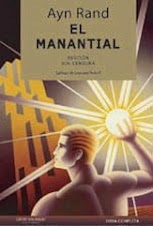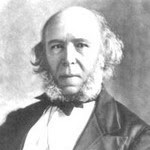En septiembre del año 2001 cuando los Estados Unidos fueron atacados por el terrorismo, una parte del mundo celebró los atentados descaradamente, otra parte fingió sentimientos y envió mensajes de solidaridad hacia el pueblo de esa nación.
Cuando los Estados Unidos empuñaron las armas como acción ofensiva y defensiva, el mundo se quitó la careta y dejó en claro que la solidaridad y la compasión eran pura farsa. La farsa moralista-pacifista fue más evidente todavía, cuando los Estados Unidos pidieron colaboración a los países europeos para la guerra y estos se lo negaron bajo argumentos a favor de la paz. Mientras los estadounidenses corrían solos con los gastos de la guerra, los beneficios del combate al terrorismo se distribuían entre todos. Es la chanta fórmula socialista en acción, el típico cinismo europeo, y también de los falsos moralistas, de los falsos pacifistas, y de los falsos defensores de la vida.
En estos días en que el Estado de Israel ha sido atacado una vez más salvajemente por el terrorismo árabe el mundo ha guardado silencio, ha hecho la vista gorda ante la agresión a ese país. La hipocresía una vez más está presente, negando uno de los derechos más naturales y sagrados de cualquier ser y de cualquier entidad: el derecho a la autodefensa. Ningún organismo defensor de Derechos Humanos o entidad política condenan los atentados y asesinados cometidos por árabes contra israelíes, sólo condenan los que deja la acción del Ejército Israelí en el campo opuesto. Que no digan entonces los organismos internacionales que son defensores de la paz y de la vida, porque la falsedad de sus palabras son muy evidentes, no son partidarios de la paz ni de los derechos humanos, sino partidarios del salvajismo. Son descaradamente hipócritas.
El mundo no tiene derecho a impedir que una nación se defienda, ni Israel tiene que pedir autorización a nadie para defenderse. La ONU, ni cualquier otra comunidad de naciones no pueden impedir el ejercicio de un derecho que no ha otorgado, ni creerse que tienen más autoridad para imponer su criterio.
Si la comunidad mundial está realmente preocupada por la vida y los derechos humanos deberían ayudar y proteger a Israel contra la barbarie árabe. Porque Israel está demostrando al mundo que es el más civilizado de los países occidentales. Un ejemplo que el mundo debería observar.
Gran parte de la población no acepta que un individuo o un estado sean exitosos, como lo son Estados Unidos e Israel. La envidia es lo que mueve a los pacifistas y a los fracasados a atacar a estos países exitosos. Las razones por las cuales Israel es atacado salvajemente no es la ocupación de un territorio, sino el fracaso de una cultura que en mil años no ha progresado nada ni ha inventado nada. El desarrollo israelí frente al fracaso árabe del otro lado es un insulto que la comunidad árabe y la hipocresía occidental fracasada y mediocre no puede tolerar.
diciembre 31, 2008
A los falsos pacifistas
diciembre 09, 2008
Porqué Argentina es pobre.
Espero que se vea en la televisión. ¿Que canal se atrevería a pasarlo sin cobrar?
Mmmmmm.....La plata del Sr Kirchner es más dulce.
Video producido por Foro Republicano www.fororepublicano.com
diciembre 08, 2008
La Mentira Oficial presentada por Nicolás Márquez en Washington D.C.
Parte 1/2
Parte 2/2
Nicolás Márquez desde hace mucho tiempo se ha ocupado de destapar la hipocrecía existente en quienes hacen defensa en la actualidad por los Derechos Humanos. Gente que realmente no le interesan los derechos humanos individuales, sino que usan esa bandera como un negocio de enriquecimiento personal. Es más está a la vista, que si se relacionan con personajes acusados de homicidios, terrorismo y otros delitos en países extranjeros; celebran atentados terroristas comentidos en diferentes lugares del mundo, no tienen autoridad moral para defender los derechos humanos de sus familiares desaparecidos, si no son capaces de respetar los derechos de otras personas.
El autor explica la relación de estas organizaciones con el poder político, cómo han cooptado el poder judicial, desconociendo los preceptos constitucionales y con el fin de convertirlo en una arma para perseguir, combatir y destruir a sus adversarios.
Hoy en día, las bandas subversivas y terroristas que atacaron a la comunidad de Argentina en los años 70, ya no necesitan secuestrar empresarios y pedirles un rescate. Ahora tienen un arma mucho más sofisticada: la prensa y la presión politica para conseguir millonarias indemnizaciones económicas.
Nicolás Márquez, e autor de esta obra de "La Mentira Oficial", vista en en este post. También es autor de: "La Otra Parte de la Verdad" y "El Vietnam Argentino"
diciembre 06, 2008
El Periodismo
Estaba leyendo un post viejo de No me parece, “¿Deber del Periodismo?” para ver si lograba encontrar algo que me ayudara a terminar un par de ideas que tenía en la cabeza para este post sobre cuáles deben ser las funciones del periodismo, y qué es, desde mi óptica, el periodismo correcto.
Para empezar, creo necesario separar la profesión en dos tipos básicos de periodismo, estos serían el periodismo de opinión, y el de reporte de la noticia.
El segundo no es demasiado complicado, basta un idiota agradable a la cámara o al micrófono que lea titulares o un teleprompter, y se limite, sin opinar, a realizar una crónica de lo que pasó en un determinado lapso de tiempo. Para eso es el reportero, nada más que para reportar noticias. Probablemente con un par de cursos de oratoria alcance para dicho puesto.
Después están los periodistas de opinión y estos sí son un verdadero caso de análisis, probablemente clínico también.
Los periodistas de opinión, como su nombre lo indica, opinan sobre todo lo que tienen a la mano. Desde ecología hasta psicología, pasando por todo el espectro de las ciencias blandas, ciencias duras, religión, arte y deporte.
Lo ideal sería que antes de opinar estos “periodistas” se informaran, la carrera de “periodismo” no debería existir como tal, sino que debería ser solamente para expertos en la materia, estén del lado de la ideología que estén. No es necesaria una carrera para enseñar a escribir, el experto en psicología adolescente sabe escribir y puede escribir sus notas sin demasiados problemas.
El periodismo de opinión, como existe hoy, es una aberración que llega al extremo de banalizar profesiones, como el caso de la psicología forense, donde paneles de frustradas infladas a botox opinan sobre la psicopatía en todas sus variables; los profesionales también se prestan para este juego estúpido yendo a cualquier programa ridículo a mostrar la cara, sin un conocimiento acabado del tema que los hacen presentar.
Aquí es donde viene la parte donde propongo algo que va a ofender a muchos, que es eliminar las carreras de periodismo, y que al periodismo de opinión lo ejerzan profesionales en el ámbito que se esté discutiendo (hubo una propuesta similar en No me parece, pero no trascendió como debió haberlo hecho).
Eso por un lado. Otro de los puntos que quería tocar es el de la ideología en los medios.
Desde el momento en que los medios están hechos por hombres y para los hombres, están inmersos en la ideología. No puede pedirse que un periodista de opinión, un experto como planteaba antes, no tenga ideología. Todos los seres humanos la tienen.
Lo que debe esperarse es que el presentador no la tenga y lea la noticia con el mayor grado de objetivismo posible, sin adjetivos extremistas ni cosas por el estilo, aunque en este punto entra la ideología del que la escribe en un primer término, pero no quiero adentrarme en eso.
Puede haber medios liberals o medios conservadores, lo maravilloso de la libertad de expresión es que puede haber de todo y nos garantiza el derecho a ofender a los demás con lo dicho sin que el ofendido pueda recurrir a la violencia para des-ofenderse como hacen los fanáticos fundamentalistas, o como hicieron los fundamentalistas con las caricaturas de Mahoma, que estoy tentado de subir, pero desviarían lo importante del post.
El problema de la ideología de los medios es cuando, como bien dice Benegas, se vende al mejor postor, casi siempre el gobierno de turno que suele contar con recursos practicamente ilimitados para controlar a los medios. Puede haber medios oficialistas, nadie dice que no, pero deben serlo por congruencia ideológica, no por pauta oficial.
Finalmente, después de analizado el periodismo y la función del periodista, y la ideología de los mismos, queda analizar, para mí, la función de los medios en la sociedad, que dista mucho de la imbecilidad progresista de la función social de los medios.
La función de los medios, en una república, como cuarto poder como se los suele catalogar, es la de investigar e informar para ayduar a controlar a los demás poderes, sin violar las libertades básicas de los seres humanos, porque están muy distantes el periodismo de investigación serio (como el que levantó las exhorbitantes sumas que cobran los artistas populares) y el amarillismo escandaloso (como el que mostraba el cadáver de la tristemente célebre Nora Dalmasso de Macarrón), pero eso es para otro momento.
Resumiendo: hay que eliminar las facultades de periodismo, el periodismo de opinión debe ser ejercido por expertos en la materia. La ideología de los periodistas es necesaria, pero bajarse los pantalos por unos pesos de Albistur es malo, patético y hace mal a la democracia, y finalmente, el periodismo es la cuarta pata de la mesa de la república: si la cortan, se cae lo que está arriba después de un tiempo.
diciembre 05, 2008
La barbarie ganará una batalla pero no la guerra.

Hace algunos días atrás, el periodista José Benegas publicó en su blog, copias de recibos emitidos por ciertos artistas amigos del gobierno, como León Gieco, Mercedes Sosa, Adriana Varela y Teresa Parodi, donde constaban cifras pagadas por la Jefatura de Gabinete de la Nación por montos que excedían hasta diez veces los precios normales que esos artistas cobran en recitales cuando son contratados por privados. Para la clase dirigente y la progresía a la que pertenecen estos artistas que constante y persistentemente en sus canciones cantan consignas contra la corrupción y contra el capitalismo, la publicación de esos recibos desnuda la hipocresía de sus consignas y deja en claro, que ellos son la misma cosa por la que dicen estar luchando para erradicar. Demuestran también con esto, que el Estado es el refugio de ladrones y estafadores, que buscan ganarse el dinero fácilmente.
Desde entonces la movida de estos artistas y ciertos grupos afines al gobierno, contra Benegas han sido evidentes. Han comenzado a trabajar para desacreditar a este periodista con descalificaciones y calumnias publicadas en diarios y revistas sobornados por el gobierno. Han pretendido asociarlo con grupos de derecha que buscan un golpe de estado, y vincularlo con personas acusadas de un supuesto genocidio ocurrido treinta años atrás o tal vez más, cuando Benegas era un niño que no tenía nada entender ni decidir en una cuestión semejante. Han acusado también a la Fundación Atlas 1853, de quien Benegas ha contribuido con muchos artículos. Pero lo que Benegas busca es un juicio político a la presidente Cristina Kirchner por falta de idoneidad y no un golpe de estado. Como el mismo Benegas lo dice, el golpe de estado lo ha dado el mismo señor Kirchner cuando avasalló el poder judicial y lo continúa su mujer ahora en el cargo. El juicio político en realidad sería la restauración del orden legal y no su quiebre.
Tengo un gran afecto por José Benegas. Sus ensayos, sus declaraciones en radio y televisión, me han abierto la mente y me han permitido ver muchas cosas de una manera muy diferente. Seguramente a mucha gente le ha sucedido lo mismo que a mí. Recuerdo cuando lo vi por primera vez en la TV, en el año 2000, en un excelente programa llamado “Sin Fronteras”. En ese programa, Marilú Kikuchi y Armando Ribas lo presentaron. En los programas siguientes comencé a distinguirlo por el exquisito juicio de sus comentarios acerca de la realidad argentina y de muchas cosas más. Recuerdo también la desazón que me produjo en el año 2003, cuando dijo que no trabajaba más en el programa. No obstante no me resigné, lo busqué en Internet y continué leyéndolo en un sitio web que tenía llamado “El Disidente” Luego seguí leyéndolo en el blog No me parece, y desde entonces he visitado este blog todos los días, aunque muchas veces me haya abstenido de dejar comentarios.
Por mucho tiempo Benegas ha sido una rareza en la prensa y en el pensamiento, alguien que ha ido contra la corriente de mediocridad en que se ha movido la sociedad argentina. Hoy por suerte ya no está tan solo.
Hoy Benegas dice en su blog “Polvora en Chimangos”, porque está siendo atacado por la chusma insolente del gobierno y de sus fuerzas de choque, pero no creo que su lucha haya sido en vano. Nadie como él ha sido tan persistente defensor de las libertades individuales, tan coherente en sus argumentos, e insobornables por el sucio dinero del gobierno o de quien sea. Y los enemigos de la libertad, entre los que pongo al gobierno argentino en primer lugar, naturalmente quieren sacarlo del camino de saqueo imparable.
Creo entender lo que pasa. Benegas parece estar deprimido, espero que no. Ver el propio nombre manoseado por la gentuza de Revista 23, esa coimera, inmoral y mugrosa revista. No es grato para nadie que se lo asocie a crímenes y que se levante calumias de si mismo. Lo que temo es que Benegas se de por vencido y acepte el chantaje de la chusma.
Es paradójico que el premio Defensor de la Libertad,se lo hayan dado a Fontevecchia. Fontevecchia es otra rata apestosa del periodismo argentino, que por lo visto la libertad le importa un bledo, y escribe lo que los lectores quieren leer y no lo que realmente cree, y se sabe bien que el público no quiere la verdad, sino que le mientan, que le cuenten fantasías, sólo una minoría del público busca la verdad. El gran defensor de libertad en la prensa es José Benegas por rato. Fontevechia es liberal hoy por cuestiones de marketing, pero si mañana los lectores le indican que escriba como zurdo escribirá como zurdo; si quieren que escriba como conservador, escribirá como conservador.
Fontevechia, su diario Perfil, la revista Noticias, y la indigna Revista 23, no son diferentes de lo que son Clarín o Página 12, y los canales abiertos: Telefe, América 2, Tn, C5N, y Canal 13, o Radio 10, Todo lo hacen por el dinero como Al Capone con sus negocios de licores. Hablan o callan según el mejor postor. El valor de la verdad no significa nada para ellos y las Libertades Individuales mucho menos, excepto cuando se trata de sus negocios.
Estos medios y estos periodistas no tienen el más mínimo código moral. La libertad de prensa, indispensable para democracia y la transparencia de los actos públicos no tiene nada que ganar con esta clase de periodismo existente en Argentina.
Por todo esto digo: ¡Aguante José Benegas! La lucha por la libertad y por la decencia es dura. No es derrota ser calumniado o atacado. La derrota es darse por vencido. Lo dice de corazón un amigo.




diciembre 03, 2008
Padres Fundadores: In Memorian
En esta oportunidad me limitaré a transcribir algunos textos breves de los Padres Fundadores en Estados Unidos para que los lectores saquen sus propias conclusiones y se formulen las reflexiones que estimen pertinentes, exentos de glosas y comentarios de cualquier naturaleza que sean.
James Madison (1792) : “El gobierno ha sido instituido para proteger la propiedad de todo tipo [...] Éste ha sido el fin del gobierno, sólo un gobierno es justo cuando imparcialmente asegura a todo hombre lo que es suyo”.
James Madison (1788) : “Hemos oído la impía doctrina del Viejo Mundo por la que la gente era hecha para el rey y no el rey para la gente.¿Se revivirá la misma doctrina en el Nuevo bajo otra forma- que la sólida felicidad de la gente debe sacrificarse a las visiones de aquellas instituciones políticas bajo una forma diferente?”.
James Madison (1800) : “Los poderes delegados por la Constitución propuestos al gobierno federal son pocos y definidos”.
George Mason (1780) : “ Ahora bien, todos los actos de la legislatura aparentemente contrarios al derecho natural y a la justicia son nulos, según nuestras leyes y deben serlo según la naturaleza de las cosas [...] en conciencia estamos obligados a desobedecer las constituciones humanas que contradicen [aquellos principios fundamentales]”.
Alexander Hamilton (1788): “Voy más allá y afirmo que el bill of rights , en el sentido y en la medida para lo que se pretende no sólo resultan innecesarios en la Constitución sino que pueden resultar peligrosos [...] Puesto que ¿para qué declarar que las cosas no se harán cuando no hay poder de hacerlas?”.
Thomas Jefferson (1789) : “La tiranía de los legisladores es actualmente, y esto durante muchos años todavía, el peligro más temible. Lo del poder ejecutivo vendrá a su vez, pero en un período más remoto”.
James Wilson (1782) : “En mi modesta opinión, el gobierno se debe establecer para asegurar y extender el ejercicio de los derechos naturales de los miembros; y todo gobierno que no tiene esto en la mira, como objetivo principal, no es un gobierno legítimo”.
Thomas Jefferson (1792) : “Se necesita un gobierno frugal que restrinja a los hombres que se lesionen unos a otros y que , por lo demás, los deje libres para regular sus propios objetivos”.
Thomas Jefferosn (1787) : “Una pequeña rebelión de vez en cuando es algo bueno y necesario en el mundo político, tal como las tormentas lo son en el físico”.
George Washington (1796) : “Establecimientos militares desmesurados constituyen malos auspicios para la libertad bajo cualquier forma de gobierno y deben ser considerados como particularmente hostiles a la libertad republicana”.
Alexander Hamilton (1787) : “La violenta destrucción de a vida y la propiedad en la guerra, el esfuerzo continuo y la alarma consustancial al estado de peligro permanente, hará que las naciones más apegadas a la libertad pidan reposo y seguridad a instituciones que tienen una tendencia a destruir sus derechos civiles y políticos. Para obtener seguridad estarán dispuestos a correr el riesgo de ser menos libres”.
James Madison (1780) : “El ejército con un Ejecutivo sobredimensionado no será por mucho un compañero seguro para la libertad [...] El peligro extranjero siempre ha sido el instrumento de la tiranía dentro del país”.
Thomas Paine (1776) : “La sociedad en todos sus estados es una bendición, pero el gobierno, aún en su mejor estado, constituye un mal necesario y en su peor estado, uno intolerable”.
Thomas Jefferson (1782) : “Un despotismo electo no fue el gobierno por el que luchamos”.
George Washington (1795) : “Mi ardiente deseo es, y siempre ha sido, cumplir con todos nuestros compromisos en el exterior y en lo doméstico, pero mantener a los Estados Unidos fuera de toda conexión política con otros países”.
Benjamin Franklin (1787) : “Este esquema de gobierno será probablemente bien administrado en el curso de años y puede sólo terminar en despotismo, tal como ha ocurrido con otras formas antes que él, cuando la gente sea tan corrupta como para necesitar un gobierno despótico, siendo incapaz de ningún otro”.
Benjamin Franklin (1759). “Aquellos que renuncian a libertades esenciales para obtener seguridad temporaria, no merecen ni la libertad ni la seguridad”.
George Mason (1781) : “Un repaso permanente de los principios fundamentales es absolutamente necesario para preservar las bendiciones de la libertad”.
Fuente: Diario de América
noviembre 30, 2008
La Realidad Argentina contada desde Uruguay
En este archivo de audio, se escucha la realidad política argentina actual contada desde Uruguay. En Argentina ningún medio de prensa lo contaría así, porque están casi todos sobornados por el cheque del gobierno; pero quienes no, por temores a represalias de la pandilla gobernante.
noviembre 26, 2008
La estatización de las A.F.J.P. y la opinión de José Piñera
Cada vez que se escuche la palabra solidaridad debemos temer. El plan del gobierno argentino de apoderarse de los ahorros provisionales de 10 millones de argentinos, con el pretexto de asegurar su jubilación, y de usar los fondos para fines sociales no tiene nada de solidario ni de social, es más, tiene todos los caracteres de una acción vandálica de la peor calaña.
Pero no es solamente el hecho de saquear los ahorros de millones de personas lo grave del asunto, sino las calamitosas consecuencias que la estatización traerá para el desarrollo económico del país. Millones de personas estarán condenadas a vivir en la pobreza, por la falta de inversiones que la economía necesita imperiosamente para el desarrollo. ¿Quién invertirá en una nación donde no se respetan los derechos de propiedad? El derecho de propiedad es un requisito básico, fundamental, para el desarrollo. El estado debe defender la propiedad privada, debe proteger al ciudadano y asegurar que cada uno goce del producto de su trabajo, en vez de actuar como un saqueador más. Las excusas usadas por los partidarios de la estatización, todos también partidarios del gobierno en mayor o menor grado, no están preocupados por los futuros jubilados ni por el bienestar de la gente. El único interés que los mueve es defender su parasitaria vida a expensas de otros ciudadanos. El estado es el refugio donde este ladronismo parasitario siempre se ha sentido seguro, usando el poder legislativo, y la justicia para acomodar todo a sus intereses y apoderarse de la riqueza ajena fácilmente con falsos argumentos moralistas.
Con los vergonzosos precedentes de violaciones a leyes, tratados, acuerdos y derechos de propiedad, que han sido la consecuencia del atraso económico que padece Argentina, y por la que debería estar trabajándose duro para reestablecer el honor de la Nación, cancelando las deudas contraídas anteriormente, este acto de barbarie termina por hundir definitivamente el crédito de la Nación.
Mucha gente festeja esta barbarie porque ignoran por completo las consecuencias que se aproximan, no ven más allá de sus propias narices, y la misma estrechez de visión es la que tiene todo el equipo gobernante. Lo que acaban de hacer no es un hecho más, es una tragedia realmente.
Es triste ver que el futuro de un argentino decente sea irse al extranjero, si desea tener un mejor estándar de vida, porque cualquier cosa que produzca en su país es pasible de ser arrebatado.
En 1983, cuando se hablaba del regreso de la democracia, millones de personas creyeron el fin de una serie de gobiernos atropelladores y prepotentes, no se imaginaron que tendríamos una porquería tan grande como gobierno, que no tiene una gota de democracia. La democracia es libertad de elegir, libertad de usar y gozar de su propiedad; de vivir tranquilo sin ser molestado. El Estado en lugar de asegurar todas esas libertades y derechos se ha convertido en el peligro para ellos. No es el Estado de quienes debemos confiar nuestras vidas y propiedades sino de quienes debemos defendernos. Para desgracia, las elecciones en lugar de traer gobiernos mejores los traen cada vez peores. Desde 1983 hasta la fecha ha sido una salvaje involución. Argentina desde 1983 hasta la fecha se ha vuelto más salvaje, más incivilizada, no parece una nación, sino una gigantesca chusma. El día de las primeras elecciones después del gobierno militar no regresó la democracia, sino un monstruo.
En este audio que puse más arriba en este post, José Piñera, ex Ministro de Trabajo y Seguridad Social de la República de Chile a principio de los años 80, quien diseñó el exitoso sistema de capitalización de ahorros previsiones, habla para Cadena 3 de Buenos Aires, acerca del sistema que él diseñó y que permitió a ese país duplicar su tasa de crecimiento económico. Las mentiras dichas en el Congreso argentino justificando el saqueo legalmente autorizado quedan al descubierto con los ejemplos que se enumeran en este reporte y que me constan como veraces, porque he visitado el país de Chile varias veces y he visto con mis propios ojos, el fenomenal empuje económico que goza ese país y del que carecen todos los demás, además de la calidad institucional que tiene esa nación.
noviembre 25, 2008
Asis con Chiche en Vivo 12-11-08
En este video, Jorge Asis habla con Chiche Gelblung de la autodestrucción de los Kirchner, después de haber agotado todo el combustible que los sostuvo en el poder político durante cinco años, esto es los altos ingresos obtenidos gracias a los elevados precios de los productos argentinos en el mercado, lo que en el lenguaje corriente de Argentina le llaman el viento de cola.
Era sabido que los Kirchner no tenían un programa politico, sino improvisación pura. Ha sido un gobierno que sólo ha sabido gastar riqueza que no ha producido, ni es capaz de producirla.
La mentira más tarde o más temprano es atrapada, y las mentiras kirchneristas han sido muchas y muy viejas. Les ha llegado la hora, pero Jorge Asis lo explica muy bien.
noviembre 18, 2008
Prohibir despidos es poner una barrera a la creación de empleos.

Como un total creyente de las leyes del mercado, una vez escuché un comentario dicho por monseñor Justo Laguna, que me impresionó y gravó en mi memoria por mucho tiempo, y pude darme cuenta de que el clero y la gente ven a la economía y los negocios como algo de gente indecente, y demuestran claramente que tienen una idea muy religiosa y puritana de la economía y ven como inmoralidades cosas que no tienen nada de inmoral, sin que es sentido común puro.
Dijo Laguna que el salario no es una mercancía, es algo que dignifica al hombre y lo acerca a Dios, y el gobierno debe procurar que el salario sea “digno”. Pero pese al disgusto que le puede provocar a Laguna, el salario está sujeto a las leyes de la oferta y demanda como todos los demás bienes y servicios. El salario no es una dignificación sino un pago, es el pago de un precio por un servicio recibido. Nada más y nada menos. Claro que es digno el hombre que se lo gana trabajando, pero el salario no tiene nada que ver con las cosas del cielo. Es una transacción puramente terrenal. No hay salarios dignos o indignos, no hay forma de definir cuando el salario es digno y cuando no lo es. El precio del salario debe ser una libre transacción entre el empleado y el empleador, sin intermediación alguna, y en donde ambos se beneficien de ese transa.
Si hay formas indignas de aprovecharse de otro, pero esa es una cuestión aparte, eso es un crimen, pertenece al campo del Derecho y de la Ética, pero mi opinión es que un salario es justo cuando recibe exactamente lo mismo que el trabajador aporta a la empresa, y la empresa o empleador recibe del trabajador exactamente la misma cantidad por lo que paga. Cualquier diferencia en más o menos lo hace injusto y tal vez indigno. La única forma de determinar el precio de los bienes y servicios es por la negociación libre, sin intromisiones, ni amenazas, ni triquiñuelas, ni extorsiones.
No hay nada que hacer. Para determinar qué es un “salario digno” debe definirse exactamente que es eso, si pueden. Luego se debe reflexionar que pasará cuando alguien recibe un pago, sin dar nada a cambio, mientras otro se perjudica, pagando por un infortunio que no puede evitar.
Poner limitaciones o prohibiciones a los despidos es poner a las empresas en dificultados en una situación mucho peor y poner una barrera no a los despidos sino a la inversión y creación de nuevos puestos de trabajo. Nadie querrá contratar empleados si ve que cae en una trampa donde no se puede salir. Nadie invertirá capital en una industria, si quien maneja el negocio es un sindicato o el gobierno y el capitalista es un espectador que no tiene poder de decisión, donde de un día para otro se pueden esfumar todas las ganancias obtenidas durante años. Los límites y prohibiciones deben ser para los funcionarios, no para los ciudadanos que trabajan y producen honestamente.
noviembre 13, 2008
Cuando Kirchner estaba a favor de elegir
Hace apenas un año. Pero las necesidades financieras para costear el corrupto aparato político que lo sostiene en el poder lo hace cambiar de convicciones con una rapidez asombrosa.
La libertad de poder elegir como decía un año atrás era una mentira por lo visto. El objetivo era apropiarse de los fondos acumulados, calculados a la fecha en $98.000 millones.
noviembre 09, 2008
Un presidente lindo, jóven y bronceado.

Sigo escribiendo de lo políticamente correcto, esta especie de estúpida religión que está extendiéndose por el mundo como una plaga.
El primer ministro italiano Silvio Berlusconi es famoso por su verborragia. Pese a que muchos no aprueban su lenguaje creo totalmente que cualquier individuo tiene el derecho de decir lo que quiera y como lo desee. En una ocasión un reportero le preguntó qué opinaba acerca del nuevo gobierno que se instalaba en España, con respecto al socialista Rodríguez Zapatero: el respondió que no le gustaba mucho porque era un gobierno demasiado rosa, en alusión a que en el gabinete de Zapatero hay demasiadas mujeres. Berlusconi fue recriminado por decir eso y luego demandado.
Hace unos dias, cuando Berlusconi visitaba Rusia, se le preguntó qué opinaba acerca del nuevo presidente de los Estados Unidos, Barak Obama, y cómo serían las relaciones entre Rusia y los Estados Unidos. Berlusconi respondió: "como es lindo, jóven y bronceado, tiene todo para llevarse bien". La clase dirigente italiana, y tan políticamente correcta, exige a gritos que Berlusconi se retracte de lo que dijo, como se eso pudiera borrar el pasado, pero Berlusconi respondío tan naturalmente como respondería cualquier hombre normal: esto es un cumplido para Barak Obama. Si no toman como tal, significa que no tienen sentido del humor y se pueden ir a la mierda. Pero lo más importante es que, Barak Obama ni los Estados Unidos no parecen estar ofendidos de ningún modo.
En Economía no hay magias
Viendo la economía desde un plano total (macroeconómico) las transferencias de los sectores eficientes a los no eficientes trae como resultado caída en la inversión, caída en el crecimiento o recesión económica. En general, el gasto público desplaza inversiones, haciendo que la economia se descapitalice lentamente.
Una empresa en crisis es una empresa que está siendo vencida por el avance tecnológico, y no tiene solución a largo plazo, por ende no tiene sentido protegerlas. Una empresa ineficiente que cierra, libera recursos humanos que pueden utilizarse en otras actividades más eficientes y rentables.
En economía no hay magias, y los mercados no fallan, como dicen los políticos, pero veamos el artículo escrito por Alberto Benegas Lynch (h), a diario Perfil
noviembre 07, 2008
Egalitarianism as a Revolt Against Nature
Daily Article by Murray N. Rothbard | Posted on 11/8/2008
This article is excerpted from the title essay and the introduction to the first edition of Egalitarianism as a Revolt Against Nature and Other Essays.
Introduction to First Edition
Probably the most common question that has been hurled at me — in some exasperation — over the years is, “Why don’t you stick to economics?”
For different reasons, this question has been thrown at me by fellow economists and by political thinkers and activists of many different persuasions: conservatives, liberals, and libertarians who have disagreed with me over political doctrine and are annoyed that an economist should venture “outside of his discipline.”
Among economists, such a question is a sad reflection of the hyperspecialization among intellectuals of the present age. I think it manifestly true that very few of even the most dedicated economic technicians began their interest in economics because they were fascinated by cost curves, indifference classes, and the rest of the paraphernalia of modern economic theory. Almost to a man, they became interested in economics because they were interested in social and political problems and because they realized that the really hard political problems cannot be solved without an understanding of economics. After all, if they were really interested mainly in equations and tangencies on graphs, they would have become professional mathematicians and not have devoted their energies to an economic theory that is, at best, a third-rate application of mathematics.
Unfortunately, what usually happens to these people is that as they learn the often imposing structure and apparatus of economic theory, they become so fascinated by the minutiae of technique that they lose sight of the political and social problems that sparked their interest in the first place. This fascination is also reinforced by the economic structure of the economics profession (and all other academic professions) itself: namely, that prestige, rewards, and brownie points are garnered not by pondering the larger problems but by sticking to one’s narrow last and becoming a leading expert on a picayune technical problem.
Among some economists, this syndrome has been carried so far that they scorn any attention to politico-economic problems as a demeaning and unclean impurity, even when such attention is given by economists who have made their mark in the world of specialized technique. And even among those economists who do deal with political problems, any consideration devoted to such larger extra-economic matters as property rights, the nature of government, or the importance of justice is scorned as hopelessly “metaphysical” and beyond the pale.
It is no accident, however, that the economists of this century of the broadest vision and the keenest insight — men such as Ludwig von Mises, Frank H. Knight, and F.A. Hayek — came early to the conclusion that mastery of pure economic theory was not enough, and that it was vital to explore related and fundamental problems of philosophy, political theory, and history. In particular, they realized that it was possible and crucially important to construct a broader systematic theory encompassing human action as a whole, in which economics could take its place as a consistent but subsidiary part.
In my own particular case, the major focus of my interest and my writings over the last three decades has been a part of this broader approach — libertarianism — the discipline of liberty. For I have come to believe that libertarianism is indeed a discipline, a “science,” if you will, of its own, even though it has been only barely developed over the generations. Libertarianism is a new and emerging discipline that touches closely on many other areas of the study of human action: economics, philosophy, political theory, history, even — and not least — biology. For all of these provide in varying ways the groundwork, the elaboration, and the application of libertarianism. Some day, perhaps, liberty and “libertarian studies” will be recognized as an independent, though related, part of the academic curriculum.
This essay was delivered at a conference on human differentiation held by the Institute for Humane Studies at Gstaad, Switzerland, in the summer of 1972. A fundamental reason and grounding for liberty are the ineluctable facts of human biology; in particular, the fact that each individual is a unique person, in many ways different from all others. If individual diversity were not the universal rule, then the argument for liberty would be weak indeed. For if individuals were as interchangeable as ants, why should anyone worry about maximizing the opportunity for every person to develop his mind and his faculties and his personality to the fullest extent possible? The essay locates the prime horror of socialism as the egalitarian attempt to stamp out diversity among individuals and groups. In short, it reflects the grounding of libertarianism in individualism and individual diversity.
Murray N. Rothbard 1974
Egalitarianism as a Revolt Against Nature
For well over a century, the Left has generally been conceded to have morality, justice, and “idealism” on its side; the conservative opposition to the Left has largely been confined to the “impracticality” of its ideals. A common view, for example, is that socialism is splendid “in theory,” but that it cannot “work” in practical life. What the conservatives failed to see is that while short-run gains can indeed be made by appealing to the impracticality of radical departures from the status quo, that by conceding the ethical and the “ideal” to the Left they were doomed to long-run defeat. For if one side is granted ethics and the “ideal” from the start, then that side will be able to effect gradual but sure changes in its own direction; and as these changes accumulate, the stigma of “impracticality” becomes less and less directly relevant. The conservative opposition, having staked its all on the seemingly firm ground of the “practical” (that is, the status quo) is doomed to lose as the status quo moves further in the left direction. The fact that the unreconstructed Stalinists are universally considered to be the “conservatives” in the Soviet Union is a happy logical joke upon conservatism; for in Russia the unrepentant statists are indeed the repositories of at least a superficial “practicality” and of a clinging to the existing status quo.
Never has the virus of “practicality” been more widespread than in the United States, for Americans consider themselves a “practical” people, and hence, the opposition to the Left, while originally stronger than elsewhere, has been perhaps the least firm at its foundation. It is now the advocates of the free market and the free society who have to meet the common charge of “impracticality.”
In no area has the Left been granted justice and morality as extensively and almost universally as in its espousal of massive equality. It is rare indeed in the United States to find anyone, especially any intellectual, challenging the beauty and goodness of the egalitarian ideal. So committed is everyone to this ideal that “impracticality” — that is, the weakening of economic incentives — has been virtually the only criticism against even the most bizarre egalitarian programs. The inexorable march of egalitarianism is indication enough of the impossibility of avoiding ethical commitments; the fiercely “practical” Americans, in attempting to avoid ethical doctrines, cannot help setting forth such doctrines, but they can now only do so in unconscious, ad hoc, and unsystematic fashion. Keynes’s famous insight that “practical men, who believe themselves to be quite exempt from any intellectual influences, are usually the slaves of some defunct economist” — is true all the more of ethical judgments and ethical theory.[1]
The unquestioned ethical status of “equality” may be seen in the common practice of economists. Economists are often caught in a value-judgment bind — eager to make political pronouncements. How can they do so while remaining “scientific” and value free? In the area of egalitarianism, they have been able to make a flat value judgment on behalf of equality with remarkable impunity. Sometimes this judgment has been frankly personal; at other times, the economist has pretended to be the surrogate of “society” in the course of making its value judgment. The result, however, is the same. Consider, for example, the late Henry C. Simons. After properly criticizing various “scientific” arguments for progressive taxation, he came out flatly for progression as follows:
The case for drastic progression in taxation must be rested on the case against inequality — on the ethical or aesthetic judgment that the prevailing distribution of wealth and income reveals a degree (and/or kind) of inequality which is distinctly evil or unlovely.[2]
Another typical tactic may be culled from a standard text on public finance. According to Professor John F. Due,
The strongest argument for progression is the fact that the consensus of opinion in society today regards progression as necessary for equity. This is, in turn, based on the principle that the pattern of income distribution, before taxes, involves excessive inequality.
The latter “can be condemned on the basis of inherent unfairness in terms of the standards accepted by society.”[3]
Whether the economist boldly advances his own value judgments or whether he presumes to reflect the values of “society,” his immunity from criticism has been remarkable nonetheless. While candor in proclaiming one’s values may be admirable, it is surely not enough; in the quest for truth it is scarcely sufficient to proclaim one’s value judgments as if they must be accepted as tablets from above that are not themselves subject to intellectual criticism and evaluation. Is there no requirement that these value judgments be in some sense valid, meaningful, cogent, true?
To raise such considerations, of course, is to flout the modern canons of pure wertfreiheit in social science from Max Weber onward, as well as the still older philosophic tradition of the stern separation of “fact and value,” but perhaps it is high time to raise such fundamental questions. Suppose, for example, that Professor Simons’s ethical or aesthetic judgment was not on behalf of equality but of a very different social ideal.
Suppose, for example, he had been in favor of the murder of all short people, of all adults under five feet, six inches in height. And suppose he had then written, “The case for the liquidation of all short people must be rested on the case against the existence of short people — on the ethical or aesthetic judgment that the prevailing number of short adults is distinctly evil or unlovely.” One wonders if the reception accorded to Professor Simons’s remarks by his fellow economists or social scientists would have been quite the same.
Or, we can ponder Professor Due writing similarly on behalf of the “opinion of society today” in the Germany of the 1930s with regard to the social treatment of Jews. The point is that in all these cases the logical status of Simons’s or Due’s remarks would have been precisely the same, even though their reception by the American intellectual community would have been strikingly different.
My point so far has been twofold:
- that it is not enough for an intellectual or social scientist to proclaim his value judgments — that these judgments must be rationally defensible and must be demonstrable to be valid, cogent, and correct: in short, that they must no longer be treated as above intellectual criticism; and
- that the goal of equality has for too long been treated uncritically and axiomatically as the ethical ideal.
Thus, economists in favor of egalitarian programs have typically counterbalanced their uncriticized “ideal” against possible disincentive effects on economic productivity; but rarely has the ideal itself been questioned.[4]
Let us proceed, then, to a critique of the egalitarian ideal itself — should equality be granted its current status as an unquestioned ethical ideal? In the first place, we must challenge the very idea of a radical separation between something that is “true in theory” but “not valid in practice.” If a theory is correct, then it does work in practice; if it does not work in practice, then it is a bad theory. The common separation between theory and practice is an artificial and fallacious one. But this is true in ethics as well as anything else. If an ethical ideal is inherently “impractical,” that is, if it cannot work in practice, then it is a poor ideal and should be discarded forthwith. To put it more precisely, if an ethical goal violates the nature of man and/or the universe and, therefore, cannot work in practice, then it is a bad ideal and should be dismissed as a goal. If the goal itself violates the nature of man, then it is also a poor idea to work in the direction of that goal.
Suppose, for example, that it has come to be adopted as a universal ethical goal that all men be able to fly by flapping their arms. Let us assume that “proflappers” have been generally conceded the beauty and goodness of their goal, but have been criticized as “impractical.” But the result is unending social misery as society tries continually to move in the direction of arm flying, and the preachers of arm flapping make everyone’s lives miserable for being either lax or sinful enough not to live up to the common ideal. The proper critique here is to challenge the “ideal” goal itself; to point out that the goal itself is impossible in view of the physical nature of man and the universe; and, therefore, to free mankind from its enslavement to an inherently impossible and, hence, evil goal.
But this liberation could never occur so long as the anti-arm-fliers continued to be solely in the realm of the “practical” and to concede ethics and “idealism” to the high priests of arm flying. The challenge must take place at the core — at the presumed ethical superiority of a nonsensical goal. The same, I hold, is true of the egalitarian ideal, except that its social consequences are far more pernicious than an endless quest for man’s flying unaided. For the condition of equality would wreak far more damage upon mankind.
What, in fact, is “equality”? The term has been much invoked but little analyzed. A and B are “equal” if they are identical to each other with respect to a given attribute. Thus, if Smith and Jones are both exactly six feet in height, then they may be said to be “equal” in height. If two sticks are identical in length, then their lengths are “equal,” etc. There is one and only one way, then, in which any two people can really be “equal” in the fullest sense: they must be identical in all of their attributes. This means, of course, that equality of all men — the egalitarian ideal — can only be achieved if all men are precisely uniform, precisely identical with respect to all of their attributes. The egalitarian world would necessarily be a world of horror fiction — a world of faceless and identical creatures, devoid of all individuality, variety, or special creativity.
Indeed, it is precisely in horror fiction where the logical implications of an egalitarian world have been fully drawn. Professor Schoeck has resurrected for us the depiction of such a world in the British anti-utopian novel Facial Justice, by L.P. Hartley, in which envy is institutionalized by the State’s making sure that all girls’ faces are equally pretty, with medical operations being performed on both beautiful and ugly girls to bring all of their faces up or down to the general common denominator.[5]
A short story by Kurt Vonnegut provides an even more comprehensive description of a fully egalitarian society. Thus, Vonnegut begins his story, “Harrison Bergeron”:
The year was 2081, and everybody was finally equal. They weren’t only equal before God and the law. They were equal every which way. Nobody was smarter than anybody else. Nobody was better looking than anybody else. Nobody was stronger or quicker than anybody else. All this equality was due to the 211th, 212th, and 213th Amendments to the Constitution, and to the unceasing vigilance of agents of the United States Handicapper General.
The “handicapping” worked partly as follows:
Hazel had a perfectly average intelligence, which meant she couldn’t think about anything except in short bursts. And George, while his intelligence was way above normal, had a little mental handicap radio in his ear. He was required by law to wear it at all times. It was tuned to a government transmitter. Every twenty seconds or so, the transmitter would send out some sharp noise to keep people like George from taking unfair advantage of their brains.[6]
The horror we all instinctively feel at these stories is the intuitive recognition that men are not uniform, that the species, mankind, is uniquely characterized by a high degree of variety, diversity, differentiation — in short, inequality. An egalitarian society can only hope to achieve its goals by totalitarian methods of coercion; and, even here, we all believe and hope the human spirit of individual man will rise up and thwart any such attempts to achieve an ant-heap world. In short, the portrayal of an egalitarian society is horror fiction because, when the implications of such a world are fully spelled out, we recognize that such a world and such attempts are profoundly antihuman; being antihuman in the deepest sense, the egalitarian goal is, therefore, evil and any attempts in the direction of such a goal must be considered evil as well.
The great fact of individual difference and variability (that is, inequality) is evident from the long record of human experience; hence, the general recognition of the antihuman nature of a world of coerced uniformity. Socially and economically, this variability manifests itself in the universal division of labor, and in the “Iron Law of Oligarchy” — the insight that, in every organization or activity, a few (generally the most able and/or the most interested) will end up as leaders, with the mass of the membership filling the ranks of the followers. In both cases, the same phenomenon is at work — outstanding success or leadership in any given activity is attained by what Jefferson called a “natural aristocracy” — those who are best attuned to that activity.
The age-old record of inequality seems to indicate that this variability and diversity is rooted in the biological nature of man. But it is precisely such a conclusion about biology and human nature that is the most galling of all possible irritants to our egalitarians. Even egalitarians would be hard put to deny the historical record, but their answer is that “culture” has been to blame; and since they obviously hold that culture is a pure act of the will, then the goal of changing the culture and inculcating society with equality seems to be attainable. In this area, the egalitarians slough off any pretense to scientific caution; they are scarcely content with acknowledging biology and culture as mutually interacting influences. Biology must be read out of court quickly and totally.
Let us ponder an example that is deliberately semifrivolous. Suppose that we observe our culture and find a common dictum to be, “Redheads are excitable.” Here is a judgment of inequality, a conclusion that redheads as a group tend to differ from the nonredhead population. Suppose, then, that egalitarian sociologists investigate the problem, and they find that redheads do, indeed, tend to be more excitable than nonredheads by a statistically significant amount. Instead of admitting the possibility of some sort of biological difference, the egalitarian will quickly add that the “culture” is responsible for the phenomenon: the generally accepted “stereotype” that redheads are excitable had been instilled into every redheaded child from an early age, and he or she has simply been internalizing these judgments and acting in the way society was expecting him to act. Redheads, in brief, had been “brainwashed” by the predominant nonredhead culture.
While we are not denying the possibility of such a process occurring, this common complaint seems decidedly unlikely on rational analysis. For the egalitarian culture bugaboo implicitly assumes that the “culture” arrives and accumulates haphazardly, with no reference to social facts. The idea that “redheads are excitable” did not originate out of the thin air or as a divine commandment; how, then, did the idea come into being and gain general currency?
One favorite egalitarian device is to attribute all such group-identifying statements to obscure psychological drives. The public had a psychological need to accuse some social group of excitability, and redheads were fastened on as scapegoats. But why were redheads singled out? Why not blonds or brunettes? The horrible suspicion begins to loom that perhaps redheads were singled out because they were and are indeed more excitable and that, therefore, society’s “stereotype” is simply a general insight into the facts of reality. Certainly this explanation accounts for more of the data and the processes at work and is a much simpler explanation besides.
Regarded objectively, it seems to be a far more sensible explanation than the idea of the culture as an arbitrary and ad hoc bogeyman. If so, then we might conclude that redheads are biologically more excitable and that propaganda beamed at redheads by egalitarians urging them to be less excitable is an attempt to induce redheads to violate their nature; therefore, it is this latter propaganda that may more accurately be called “brainwashing.”
This is not to say, of course, that society can never make a mistake and that its judgments of group identity are always rooted in fact. But it seems to me that the burden of proof is far more on the egalitarians than on their supposedly “unenlightened” opponents.
Since egalitarians begin with the a priori axiom that all people, and hence all groups of peoples, are uniform and equal, it then follows for them that any and all group differences in status, prestige, or authority in society must be the result of unjust “oppression” and irrational “discrimination.” Statistical proof of the “oppression” of redheads would proceed in a manner all too familiar in American political life; it might be shown, for example, that the median redhead income is lower than nonredheaded income, and further that the proportion of redheaded business executives, university professors, or congressmen is below their quotal representation in the population.
The most recent and conspicuous manifestation of this sort of quotal thinking was in the McGovern movement at the 1972 Democratic Convention. A few groups are singled out as having been “oppressed” by virtue of delegates to previous conventions falling below their quotal proportion of the population as a whole. In particular, women, youth, blacks, Chicanos (or the so-called Third World) were designated as having been oppressed; as a result, the Democratic Party, under the guidance of egalitarian-quota thinking, overrode the choices of the voters in order to compel their due quotal representation of these particular groups.
In some cases, the badge of “oppression” was an almost ludicrous construction. That youths of 18 to 25 years of age had been “underrepresented” could easily have been placed in proper perspective by a reductio ad absurdum, surely some impassioned McGovernite reformer could have risen to point out the grievous “underrepresentation” of five-year-olds at the convention and to urge that the five-year-old bloc receive its immediate due. It is only commonsense biological and social insight to realize that youths win their way into society through a process of apprenticeship; youths know less and have less experience than mature adults, and so it should be clear why they tend to have less status and authority than their elders. But to accept this would be to cast the egalitarian creed into some substantial doubt; further, it would fly in the face of the youth worship that has long been a grave problem of American culture. And so young people have been duly designated as an “oppressed class,” and the coercing of their population quota is conceived as only just reparation for their previously exploited condition.[7]
Women are another recently discovered “oppressed class,” and the fact that political delegates have habitually been far more than 50 percent male is now held to be an evident sign of their oppression. Delegates to political conventions come from the ranks of party activists, and since women have not been nearly as politically active as men, their numbers have understandably been low. But, faced with this argument, the widening forces of “women’s liberation” in America again revert to the talismanic argument about “brainwashing” by our “culture.” For the women’s liberationists can hardly deny the fact that every culture and civilization in history, from the simplest to the most complex, has been dominated by males. (In desperation, the liberationists have lately been countering with fantasies about the mighty Amazonian empire.) Their reply, once again, is that from time immemorial a male-dominated culture has brainwashed oppressed females to confine themselves to nurture, home, and the domestic hearth. The task of the liberationists is to effect a revolution in the female condition by sheer will, by the “raising of consciousness.” If most women continue to cleave to domestic concerns, this only reveals the “false consciousness” that must be extirpated.
Of course, one neglected reply is that if, indeed, men have succeeded in dominating every culture, then this in itself is a demonstration of male “superiority”; for if all genders are equal, how is it that male domination emerged in every case? But apart from this question, biology itself is being angrily denied and cast aside. The cry is that there are no, can be no, must be no biological differences between the sexes; all historical or current differences must be due to cultural brainwashing.
In his brilliant refutation of the women’s liberationist Kate Millett, Irving Howe outlines several important biological differences between the sexes, differences important enough to have lasting social effects. They are
- “the distinctive female experience of maternity” including what the anthropologist Malinowski calls an “intimate and integral connection with the child … associated with physiological effects and strong emotions”;
- “the hormonic components of our bodies as these vary not only between the sexes but at different ages within the sexes”;
- “the varying possibilities for work created by varying amounts of musculature and physical controls”; and
- “the psychological consequences of different sexual postures and possibilities,” in particular the “fundamental distinction between the active and passive sexual roles” as biologically determined in men and women respectively.[8]
Howe goes on to cite the admission by Dr. Eleanor Maccoby in her study of female intelligence that
it is quite possible that there are genetic factors that differentiate the two sexes and bear upon their intellectual performance…. For example, there is good reason to believe that boys are innately more aggressive than girls — and I mean aggressive in the broader sense, not just as it implies fighting, but as it implies dominance and initiative as well — and if this quality is one which underlies the later growth of analytic thinking, then boys have an advantage which girls … will find difficult to overcome.
Dr. Maccoby adds that “if you try to divide child training among males and females, we might find out that females need to do it and males don’t.”[9]
The sociologist Arnold W. Green points to the repeated emergence of what the egalitarians denounce as “stereotyped sex roles” even in communities originally dedicated to absolute equality. Thus, he cites the record of the Israeli kibbutzim:
The phenomenon is worldwide: women are concentrated in fields which require, singly or in combination, housewifely skills, patience and routine, manual dexterity, sex appeal, contact with children. The generalization holds for the Israeli kibbutz, with its established ideal of sexual equality. A “regression” to a separation of “women’s work” from “men’s work” occurred in the division of labor, to a state of affairs which parallels that elsewhere. The kibbutz is dominated by males and traditional male attitudes, on balance to the content of both sexes.[10]
Irving Howe unerringly perceives that at the root of the women’s liberation movement is resentment against the very existence of women as a distinctive entity:
For what seems to trouble Miss Millett isn’t merely the injustices women have suffered or the discriminations to which they continue to be subject. What troubles her most of all … is the sheer existence of women. Miss Millett dislikes the psychobiological distinctiveness of women, and she will go no further than to recognize — what choice is there, alas? — the inescapable differences of anatomy. She hates the perverse refusal of most women to recognize the magnitude of their humiliation, the shameful dependence they show in regard to (not very independent) men, the maddening pleasures they even take in cooking dinners for the “master group” and wiping the noses of their snotty brats. Raging against the notion that such roles and attitudes are biologically determined, since the very thought of the biological seems to her a way of forever reducing women to subordinate status, she nevertheless attributes to “culture” so staggering a range of customs, outrages, and evils that this culture comes to seem a force more immovable and ominous than biology itself.[11]
In a perceptive critique of the women’s liberation movement, Joan Didion perceives its root to be a rebellion not only against biology but also against the “very organization of nature” itself:
If the necessity for conventional reproduction of the species seemed unfair to women, then let us transcend, via technology, “the very organization of nature,” the oppression, as Shulamith Firestone saw it, “that goes back through recorded history to the animal kingdom itself.” I accept the Universe, Margaret Fuller had finally allowed: Shulamith Firestone did not.[12]
To which one is tempted to paraphrase Carlyle’s admonition: “Egad, madam, you’d better.”
Another widening rebellion against biological sex norms, as well as against natural diversity, has been the recently growing call for bisexuality by Left intellectuals. The avoidance of “rigid, stereotyped” heterosexuality and the adoption of indiscriminate bisexuality is supposed to expand consciousness, to eliminate “artificial” distinctions between the sexes and to make all persons simply and unisexually “human.”
Once again, brainwashing by a dominant culture (in this case, heterosexual) has supposedly oppressed a homosexual minority and blocked off the uniformity and equality inherent in bisexuality. For then every individual could reach his or her fullest “humanity” in the “polymorphous perversity” so dear to the hearts of such leading New Left social philosophers as Norman O. Brown and Herbert Marcuse.
That biology stands like a rock in the face of egalitarian fantasies has been made increasingly clear in recent years. The researches of biochemist Roger J. Williams have repeatedly emphasized the great range of individual diversity throughout the entire human organism. Thus
Individuals differ from each other even in the minutest details of anatomy and body chemistry and physics; finger and toe prints; microscopic texture of hair; hair pattern on the body, ridges and “moons” on the finger and toenails; thickness of skin, its color, its tendency to blister; distribution of nerve endings on the surface of the body; size and shape of ears, of ear canals, or semi-circular canals; length of fingers; character of brain waves (tiny electrical impulses given off by the brain); exact number of muscles in the body; heart action; strength of blood vessels; blood groups; rate of clotting of blood — and so on almost ad infinitum.
We now know a great deal about how inheritance works and how it is not only possible but certain that every human being possesses by inheritance an exceedingly complex mosaic, composed of thousands of items, which is distinctive for him alone.[13]
The genetic basis for inequality of intelligence has also become increasingly evident, despite the emotional abuse heaped upon such studies by fellow scientists as well as the lay public. Studies of identical twins raised in contrasting environments have been among the ways that this conclusion has been reached; and Professor Richard Herrnstein has recently estimated that 80 percent of the variability in human intelligence is genetic in origin. Herrnstein concludes that any political attempts to provide environmental equality for all citizens will only intensify the degree of socioeconomic differences caused by genetic variability.[14]
The egalitarian revolt against biological reality, as significant as it is, is only a subset of a deeper revolt: against the ontological structure of reality itself, against the “very organization of nature”; against the universe as such. At the heart of the egalitarian Left is the pathological belief that there is no structure of reality; that all the world is a tabula rasa that can be changed at any moment in any desired direction by the mere exercise of human will — in short, that reality can be instantly transformed by the mere wish or whim of human beings. Surely this sort of infantile thinking is at the heart of Herbert Marcuse’s passionate call for the comprehensive negation of the existing structure of reality and for its transformation into what he divines to be its true potential.
Nowhere is the left-wing attack on ontological reality more apparent than in the utopian dreams of what the future socialist society will look like. In the socialist future of Charles Fourier, according to Ludwig von Mises,
all harmful beasts will have disappeared, and in their places will be animals which will assist man in his labors — or even do his work for him. An antibeaver will see to the fishing; an antiwhale will move sailing ships in a calm; an antihippopotamus will tow the river boats. Instead of the lion there will be an antilion, a steed of wonderful swiftness, upon whose back the rider will sit as comfortably as in a well-sprung carriage. “It will be a pleasure to live in a world with such servants.”[15]
Furthermore, according to Fourier, the very oceans would contain lemonade rather than salt water.[16]
Similarly absurd fantasies are at the root of the Marxian utopia of communism. Freed from the supposed confines of specialization and the division of labor (the heart of any production above the most primitive level and hence of any civilized society), each person in the communist utopia would fully develop all of his powers in every direction.[17] As Engels wrote in his Anti-Dühring, communism would give “each individual the opportunity to develop and exercise all his faculties, physical and mental, in all directions.”[18] And Lenin looked forward in 1920 to the “abolition of the division of labor among people … the education, schooling, and training of people with an all-around development and an all-around training, people able to do everything. Communism is marching and must march toward this goal, and will reach it.”[19]
In his trenchant critique of the communist vision, Alexander Gray charges
That each individual should have the opportunity of developing all his faculties, physical and mental, in all directions, is a dream which will cheer the vision only of the simpleminded, oblivious of the restrictions imposed by the narrow limits of human life. For life is a series of acts of choice, and each choice is at the same time a renunciation.
Even the inhabitant of Engels’s future fairyland will have to decide sooner or later whether he wishes to be Archbishop of Canterbury or First Sea Lord, whether he should seek to excel as a violinist or as a pugilist, whether he should elect to know all about Chinese literature or about the hidden pages in the life of a mackerel.[20]
Of course one way to try to resolve this dilemma is to fantasize that the New Communist Man of the future will be a superman, superhuman in his abilities to transcend nature. William Godwin thought that, once private property was abolished, man would become immortal. The Marxist theoretician Karl Kautsky asserted that in the future communist society, “a new type of man will arise … a superman … an exalted man.” And Leon Trotsky prophesied that under communism
man will become incomparably stronger, wiser, finer. His body more harmonious, his movements more rhythmical, his voice more musical…. The human average will rise to the level of an Aristotle, a Goethe, a Marx. Above these other heights new peaks will arise.[21]
We began by considering the common view that the egalitarians, despite a modicum of impracticality, have ethics and moral idealism on their side. We end with the conclusion that egalitarians, however intelligent as individuals, deny the very basis of human intelligence and of human reason: the identification of the ontological structure of reality, of the laws of human nature, and the universe. In so doing, the egalitarians are acting as terribly spoiled children, denying the structure of reality on behalf of the rapid materialization of their own absurd fantasies. Not only spoiled but also highly dangerous; for the power of ideas is such that the egalitarians have a fair chance of destroying the very universe that they wish to deny and transcend, and to bring that universe crashing around all of our ears. Since their methodology and their goals deny the very structure of humanity and of the universe, the egalitarians are profoundly antihuman; and, therefore, their ideology and their activities may be set down as profoundly evil as well. Egalitarians do not have ethics on their side unless one can maintain that the destruction of civilization, and even of the human race itself, may be crowned with the laurel wreath of a high and laudable morality.
_________________________
Murray N. Rothbard (1926–1995) was dean of the Austrian School. See his archive. Comment on the blog.
This article is excerpted from the title essay and the introduction to the first edition of Egalitarianism as a Revolt Against Nature and Other Essays.
Notes
[1] John Maynard Keynes, The General Theory of Employment, Interest, and Money (New York: Harcourt, Brace, 1936), p. 383.
[2] Henry C. Simons, Personal Income Taxation (1938), pp. 18–19, quoted in Walter J. Blum and Harry Kalven, Jr., The Uneasy Case for Progressive Taxation (Chicago: University of Chicago Press, 1953), p. 72.
[3] John F. Due, Government Finance (Homewood, Ill.: Richard D. Irwin, 1954), pp. 128–29.
[4] Thus:
A third line of objection to progression, and undoubtedly the one which has received the most attention, is that it lessens the economic productivity of the society. Virtually everyone who has advocated progression in an income tax has recognized this as a counterbalancing consideration. (Blum and Kalven, The Uneasy Case for Progressive Taxation, p. 21)
The “ideal” vs. the “practical” once again!
[5] Helmut Schoeck, Envy (New York: Harcourt, Brace, and World, 1970), pp. 149–55.
[6] Kurt Vonnegut, Jr., “Harrison Bergeron,” in Welcome to the Monkey House (New York: Dell, 1970), p. 7.
[7] Egalitarians have, among their other activities, been busily at work “correcting” the English language. The use of the word “girl,” for example, is now held to grievously demean and degrade female youth and to imply their natural subservience to adults. As a result, left egalitarians now refer to girls of virtually any age as “women,” and we may confidently look forward to reading about the activities of “a five-year-old woman.”
[8] Irving Howe, “The Middle-Class Mind of Kate Millett,” Harper’s (December, 1970): 125–26.
[9] Ibid., p. 126.
[10] Arnold W. Green, Sociology (6th ed., New York: McGraw-Hill, 1972), p. 305. Green cites the study by A.I. Rabin, “The Sexes: Ideology and Reality in the Israeli Kibbutz,” in G.H. Seward and R.G. Williamson, eds., Sex Roles in Changing Society (New York: Random House, 1970), pp. 285–307.
[11] Howe, “The Middle-Class Mind of Kate Millett,” p. 124.
[12] Joan Didion, “The Women’s Movement,” New York Times Review of Books (July 30, 1972), p. 1.
[13] Roger J. Williams, Free and Unequal (Austin: University of Texas Press, 1953), pp. 17, 23. See also by Williams Biochemical Individuality (New York: John Wiley, 1963) and You are Extraordinary (New York: Random House, 1967).
[14] Richard Herrnstein, “IQ,” Atlantic Monthly (September, 1971).
[15] Ludwig von Mises, Socialism: An Economic and Sociological Analysis (New Haven, Conn.: Yale University Press, 1951), pp. 163–64.
[16] Ludwig von Mises, Human Action (New Haven, Conn.: Yale University Press, 1949), p. 71. Mises cites the first and fourth volumes of Fourier’s Oeuvres Complètes.
[17] For more on the communist utopia and the division of labor, see Murray N. Rothbard, Freedom, Inequality, Primitivism, and the Division of Labor (chap. 16, present volume).
[18] Quoted in Alexander Gray, The Socialist Tradition (London: Long-mans, Green, 1947), p. 328.
[19] Italics are Lenin’s. V.I. Lenin, Left-Wing Communism: An Infantile Disorder (New York: International Publishers, 1940), p. 34.
[20] Gray, The Socialist Tradition, p. 328.
[21] Quoted in Mises, Socialism: An Economic and Sociological Analysis, p. 164.
noviembre 06, 2008
La Mediocridad del Periodismo Argentino parece no tener fondo.
Y se ve claramente que los periodistas modernos con título universitario ya no les interesa la información, sino que el interés está puesto es juzgar a la gente que no concuerda con su ideología. Sus mentes han sido reducidas a los límites impuestos por las teorías de algún teórico, de cuyos libros hicieron su Biblia, y todo lo que encaja en la teoría es correcto y todo lo que la contradice es incorrecto. Tal es el caso del periodismo mediocre e idelogizado de la televisión argentina: mediocre, sobornado, adulón del gobierno y alcahuete del poder. Esa es la conducta poco profesional de periodistas como Guillermo Andino, Rodolfo Barrilli, María Laura Santillán, Magdalena Ruiz Guiñazú, Fanny Mandelbaum, Jorge Silvestre, Guillermo Bonelli, Gerardo Rozin y Alfredo Leuco. Han perdido todo crédito como informadores. Debe ser muy ingenua una persona para creerles lo que dicen.
Una semana atrás, el periodista (sin título que conste) José Benegas publicó en su blog, imágenes de unos recibos emitidos por esos falsos representantes de la “cultura nacional”, que permanentemente cantan consignas contra el capitalismo y a favor del socialismo, como: Mercedes Sosa, León Greco, Adriana Varela y Teresa Parodi. En esos recibos constan cifras elevadísimas por honorarios pagados por la Jefatura de Gabinete de la Nación. Cifras elevadísimas realmente; importes cuyos montos hacen suponer que se trata de grandes negocios capitalistas, que revelan la hipocresía de estos falsos amigos y defensores de los pobres, y que dejan al descubierto la complicidad que tienen con el poder. Es una irregularidad evidente, sin embargo el mediocre y corrupto periodismo de Argentina, en lugar de avanzar en el asunto, tratando de esclarecer el caso, ha encontrado un atajo para encubrir este asunto, acusando a José Benegas de no explicar qué es lo que cubre el pago de dichos recibos, e incluso el diario Página 12 va más lejos, y en su edición del domingo 2 de noviembre de 2008, publica un articulo donde consta que el diario ha estado investigando los movimientos y la vida, tal como lo hacían las polícias políticas del régimen nazi en Alemania, o la KGB en la URSS, sobre los movimientos y actividades de José Benegas y varios de sus lectores, pero la investigación del diario sobre esta gente tiene también relación con la oposición de este periodista a la estatización de los Fondos de Jubilaciones y Pensiones, y a la prédica constante del periodista a favor de los derechos individuales. José Benegas, está entre los pocos periodistas que no forman parte de la manada de periodistas obedientes del mandamás Kirchner.
No es de descartar, que una agresión física contra José Benegas y sus lectores “marcados” por las fuerzas de choque del gobierno y sus periodistas alcahuetes de Página 12 y también del grupo Clarín, sea posible. José Benegas ha sido identificado como enemigo y el gobierno va a buscar eliminarlo como lo ha hecho con cualquier persona que no se arrodille ante él. El reporte de Página 12, y los comentarios publicados en los blogs partidarios del gobierno son una amenaza latente.
El gobierno argentino carece de escrúpulos, y ha demostrado en los cinco últimos años que son capaces de cometer cualquier bajeza. No tienen respecto alguno por la libertad de las personas y sus propiedades; no respetan derechos ajenos, manipulan la constitución, los códigos legales y procesales; han establecido un estado de espionaje, persecución y hostigamiento contra ciudadanos opositores al régimen, dividiendo a la población en clases y buscando enfrentarlas entre si; después de haber estafado al mundo negándose a pagar las deudas públicas, ahora están yendo a manotear los ahorros para la vejez de más de 9 millones de argentinos con argumentos absolutamente falsos y en complicidad con las peores pandillas que se han apoderado de los sindicatos. Todos los actos del gobierno argentino han tenido rasgos propias de pandillas y totalmente carentes de un carácter democrático. Nunca en la historia argentina hubo un gobierno más demagógico que el de Néstor y Cristina Kirchner.
El periodismo para ser verdadero periodismo debe volver a ser un servicio informativo independiente y neutral; en vez de buscar la difamación, el juzgamiento de personas por sus opiniones diferentes, ser un agente de propaganda del gobierno, y sobre todo prostituir el título profesional a cambio de un soborno.
Sobre las Elecciones de Estados Unidos
El martes a la noche estaba viendo la televisión buscando noticias acerca de las elecciones en los Estados Unidos. Muchos periodistas argentinos, seguramente pagados con fondos del gobierno, han viajado para cubrir las noticias, pero me encontré con un problema, no encontraba información confiable y neutral. Los periodistas y analistas políticos de los que abundan, pero que no abundan en calidad, estaban tan a favor de Barak Obama, que no parecían reporteros sino agentes de campaña del candidato presidencial. Todo eran elogios para Barak Obama y descalificativos para John McCain y para el saliente presidente George W Bush. No se enciende el noticiero para escuchar un discurso político de un periodista, eso está bien si viene de un entrevistado por el periodista, pero no del periodista mismo.
Descubrí que casi todos no tienen idea acerca de la realidad política estadounidense. Apenas se habían escrutado unos pocos votos en sólo trece estados de la costa este, excepto Kentucky y ya habían dado ganador al candidato Obama, basándose en información falaz. Era evidente que Obama tenía una preferencia clara entre potenciales votantes previos a las elecciones, pero otra cosa diferente es dar por ganador, sin tener constancia suficiente de una victoria después del resultado. Cuando se mencionó la victoria en TN, sólo se habían contabilizado el 4% de los votos en Floridas, menos del 3% en Virginia y nada en Nueva York el estado más poblado de la región este. Sólo Kentucky con 11 electores había escrutado el 40% de sus votos. En total el número de votos escrutados al momento representaba el 1% del total nacional. Escuché luego otras frases harto repetidas en Argentina, que no tienen aplicación alguna en los Estados Unidos con una democracia 100 años más avanzada, y que reflejan la mediocridad periodística a la que me refiero, tales como: voto castigo, buscar al culpable, los ricos son más ricos y los pobres cada vez más pobres, justicia social, y otras propias de este país subdesarrollado, e incivilizado de Argentina.
Por suerte el periodismo está perdiendo el monopolio de la información. La aparición de Internet, y de muchos medios de comunicación, están dando medios a los individuos de escribir lo que deseen decir, sin tener que soportar la intermediación y la censura de un intermediario. Pero seguramente los periodistas no harán algo para retener la audiencia brindando un mejor periodismo, menos ideologizado y menos sobornado por el gobierno o por quien sea. Se me ocurre que en lugar de competir y mejorar buscarán en el Estado, protección contra los blogs, estableciéndoles reglamentos para que sea imposible tener uno, y/o subsidios para los medios de prensa;y el Estado haciendo gala de lo que desde siempre ha hecho: ser el refugio preferido de todos los inútiles que buscan distribuir pérdidas, ladrones que buscan dinero fácil, vagos que quieren trabajar dos días por semana y descansar cinco, delincuentes que quieren inmunidad, les proporcionará sin mayor dilación.





























